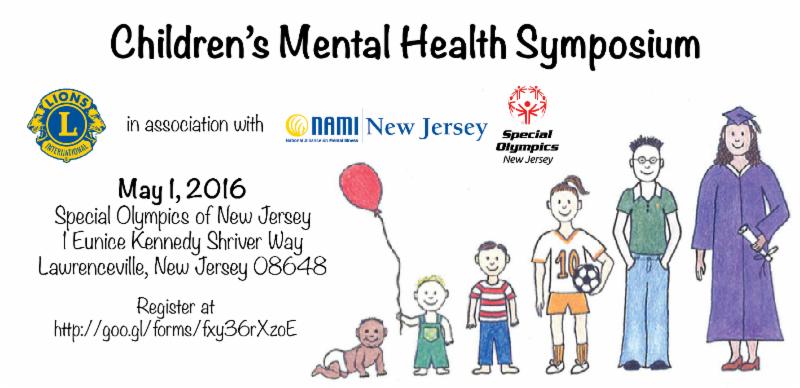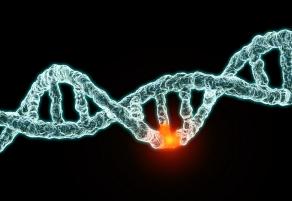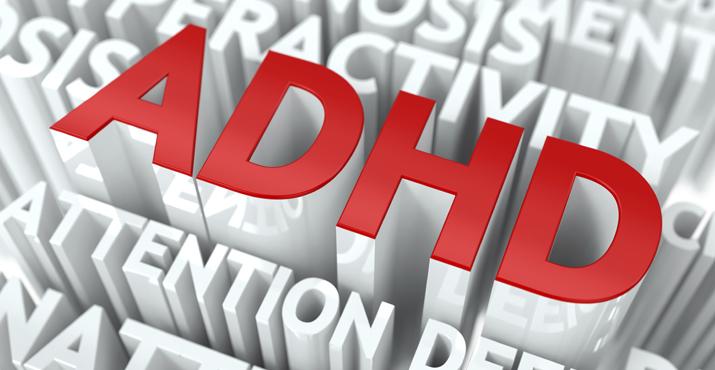Join Our List
 |
Children's Mental Health Symposium
|
 |
10:00 AM - 3:30 PM
Special Olympics of New Jersey
1 Eunice Kennedy Shriver Way
Lawrenceville, New Jersey 08648
Register
here or by
emailing
[email protected]
or call 732 455 2163
Lions Clubs International
in Association with
NAMI NJ and Special Olympics NJ
|
Walk to Support
NAMI NJ Support, Education & Advocacy!
|
 |
May 14, 2016
Check in: 9:00 AM
Walk: 10:00 AM
Seaside Park, NJ
Every journey begins with that first step! Help raise funds and awareness for the programs that NAMI NJ offers for all those affected by mental illness, their families and friends.
|
|
|
|
|
|
A Parent Speaks Out on the Need to Participate in Research Studies
|
|
|
NAMI New Jersey thanks the NIMH Outreach Partnership Program for helping us disseminate the latest research on mental illness throughout the state of New Jersey.
|
Studying Effects of Family Support
|

Seeking Loved Ones & Caregivers of Individuals Diagnosed with Schizophrenia, Schizoaffective Disorder, or Bipolar Disorder
A Rutgers study is currently recruiting for a study of the effects of various family support programs for those with loved ones with mental illness.
Eligibility:
- Residing in the New Jersey, New York, or Philadelphia area
- Access to computer or tablet with internet
- Participants and their loved ones must be over the age of 18 and be in contact with each other 2-3x per week or living together
Compensation:
- Study involves 3 phone questionnaire appointments
- Participants receive a $10 Amazon Gift Card per phone questionnaire
For more information or to sign up as a participant, please contact study research assistant:
Victoria Martin
Rutgers UBHC
151 Centennial Avenue
Piscataway NJ 08854
Tel: 908 705 5413
|
Researchers Estimate 1 in 13 People Worldwide Will Have Psychotic Experience Over Lifetime
|

According to a study in Schizophrenia Bulletin, approximately 1 in 13 people worldwide will have at least one psychotic experience by the time he or she reaches the age of 75. For most, the first experience will occur in adolescence or young adulthood, but the report suggests that nearly a quarter will have their first experience after they reach 40. The findings may help to advance the understanding of how psychotic experiences unfold across the lifespan and interact with mental disorders.
|
| Study of Brain Function During Simple Tasks and Rest |

This NIH funded study focuses on brain activity during the performance of simple
tasks and at "rest" (not engaged in any specific task). Our goal is to understand
how various brain regions are activated and how those regions influence one
another while the brain is at "work" and at "rest."
We are seeking adult individuals, 18 years or older, who have a diagnosis of
autism
or
schizophrenia
.
This study involves magnetic imaging (MRI) of participants. Consequently,
participants must:
1. be free of any embedded metal (e.g., surgical screws, pace makers, stents,
etc.) or extensive dental work involving metal.
2. be able to remove any piercings, earrings, or other jewelry before scanning
3. be comfortable with being in small spaces
4. not pregnant
Participating involves approximately 50 minutes in the scanner and participants
will be compensated with $50 cash.
|
| Large Study Ties Genes to Variable Lithium Response in Bipolar Disorder |
 Lithium is a first-line treatment for bipolar disorder. But it only works well for about one-third of patients. The variation in response is partly due to genetic factors. Lithium is a first-line treatment for bipolar disorder. But it only works well for about one-third of patients. The variation in response is partly due to genetic factors.
Now, in a large study published in The Lancet on January 21st, investigators in the International Consortium on Lithium Genetics (ConLiGen) have reported finding genetic signals on chromosome 21 that affect lithium response.
See full article here. |
|
A Role for Spontaneous Mutations in the Development of Childhood-Onset Schizophrenia
|

Spontaneous (non-inherited) DNA mutations likely play a role in the development of childhood-onset schizophrenia (COS), according to new research. In a study published online October 28, 2015 in the European Journal of Human Genetics, researchers identified 20 of these genetic changes that may contribute to the disease, offering insight into the genetic origins of COS and possible paths to treatment.
|
|
Do You Have A Child Who is Struggling with Anger, Irritability, Extreme Frustration, or Temper Tantrums?
|

This NIH research study is enrolling children ages 8 to 17 with Disruptive Mood Dysregulation Disorder (DMDD). This is a study to find out whether non-drug interventions can decrease irritability in children. The two interventions are Cognitive Behavioral Therapy (a kind of "talking therapy") and Interpretation Bias Training (a computer-based training).
Sessions are scheduled over 12 to 16 weeks. Children must live within 50 miles of the NIH Clinical Center in Bethesda, Maryland. There is no cost to participate and transportation expenses are reimbursed.
Contact us: [email protected], 1-301-496-8381 [TTY: 1-866-411-1010]
http://www.nimh.nih.gov/labs-at-nimh/join-a-study/trials/childrens-studies/psychological-treatments-for-youth-with-dmdd.shtml
|
|
Scientists Discover Non-Opioid Pain Pathway in the Brain
|

Results from a new study, funded in part by the National Center for Complementary and Integrative Health (NCCIH), demonstrate that mindfulness meditation works on a different pain pathway in the brain than opioid pain relievers. The researchers noted that because opioid and non-opioid mechanisms of pain relief interact synergistically, the results of this study suggest that combining mindfulness-based and pharmacologic/nonpharmacologic pain-relieving approaches that rely on opioid signaling may be particularly effective in treating pain. Previous research has shown that mindfulness meditation helps relieve pain, but researchers have been unclear about how the practice induces pain relief - specifically, if meditation is associated with the release of naturally occurring opiates.
Press Release: http://www.nih.gov/news-events/scientists-discover-non-opioid-pain-pathway-brain
|
|
FDA Announces Enhanced Warnings For Immediate-Release Opioid Pain Medications Related to Risks of Misuse, Abuse, Addiction, Overdose, and Death
|

In a continuing effort to educate prescribers and patients about the potential risks related to opioid use, the U.S. Food and Drug Administration (FDA) announced required class-wide safety labeling changes for immediate-release opioid pain medications. Among the changes, the FDA is requiring a new boxed warning about the serious risks of misuse, abuse, addiction, overdose, and death. These actions are among a number of steps the agency recently outlined in a plan to reassess its approach to opioid medications. The plan is focused on policies aimed at reversing the epidemic, while still providing patients in pain access to effective relief. The FDA is also requiring several additional safety labeling changes across all prescription opioid products to include additional information on the risk of these medications.
Press Release: http://www.fda.gov/NewsEvents/Newsroom/PressAnnouncements/ucm491739.htm
|
|
NIDA: Brain Dopamine Release Reduced in Severe Marijuana Dependence
|

|
|
Prevalence and Characteristics of Autism Spectrum Disorder Among Children Aged Eight Years Old
|

This report describes estimated prevalence of autism spectrum disorder (ASD) among children aged eight years old. For 2012, the combined estimated prevalence of ASD among the 11 Autism and Developmental Disabilities Monitoring Network sites was 14.6 per 1,000 (one in 68) children aged eight years old. The intended audience for this report includes health care providers, early intervention service providers, therapists, school psychologists, educators, researchers, policymakers, and program administrators seeking to understand and provide for the needs of persons with ASD and their families. These data can be used to help plan for service needs, stimulate research into etiology and risk factors, and initiate and implement policies that promote optimal outcomes in health care and education
.
http://www.cdc.gov/mmwr/volumes/65/ss/ss6503a1.htm
|
|
Blog Post: Is Lack of Access to ADHD Care Driving ED Visits?
|

This blog post discusses results from a
recent
study that found that about 24 percent of all mental health-related emergency department (ED) visits by children were for attention-deficit/hyperactivity disorder (ADHD)
specifically. Based on these data, finding ways to avoid ED visits by youth who may be experiencing ADHD can have a significant impact on health care costs. http://blog.samhsa.gov/2016/03/31/is-lack-of-access-to-adhd-care-driving-ed-visits/
|
|
Improving Cultural Competence to Reduce Health Disparities for Priority Populations
|

This Agency for Healthcare Research and Quality (AHRQ) review examined existing system-, clinic-, provider-, and individual-level interventions to improve culturally appropriate health care for people with disabilities; lesbian, gay, bisexual, and transgender (LGBT) populations; and racial/ethnic minority populations. For this review, the authors focused mainly on whether cultural competency interventions change the clinicians' attitudes or behaviors (e.g., stereotypes, communication, and clinical decisionmaking), the patient-provider relationship, and/or clinical systems to result in better outcomes for patients from the populations of interest. http://www.effectivehealthcare.ahrq.gov/search-for-guides-reviews-and-reports/?pageaction=displayproduct&productID=2206
|
|
Health Observance: Alcohol Awareness Month
|

Alcohol Awareness Month provides a focused opportunity across America to increase awareness and understanding of alcoholism, its causes, effective treatment, and recovery. Everyone can use this month to raise awareness about alcohol abuse and take action to prevent it, both at home and in the community. The National Health Observance Tool Kit for Alcohol Awareness Month provides suggestions for spreading the word, including sample social media messages, press releases, e-cards, and other tools. http://healthfinder.gov/NHO/AprilToolkit.aspx
|
|
Health Observance: National Child Abuse Prevention Month
|

National Child Abuse Prevention Month is a time to acknowledge the importance of families and communities working together to prevent child abuse and neglect, and to promote the social and emotional well-being of children and families. During the month of April and throughout the year, communities are encouraged to share child abuse and neglect prevention awareness strategies and activities, and promote prevention across the country. https://www.childwelfare.gov/topics/preventing/preventionmonth/
|
|
Webinar: Culture and Psychosis
|

This lecture presented by the NIH Office of Behavioral and Social Science Research will presents two research projects that demonstrate that cultural context shapes schizophrenia. The first is an ethnographic study of the lives of homeless psychotic women on the streets of Chicago. The second project compares the voice-hearing experiences of people with schizophrenia or schizoaffective disorder in the South Bay, California; Accra, Ghana; and Chennai, India. http://events.r20.constantcontact.com/register/event?oeidk=a07ebw97cn1ca6c320e&llr=vykrlptab
|
|
|
|
|